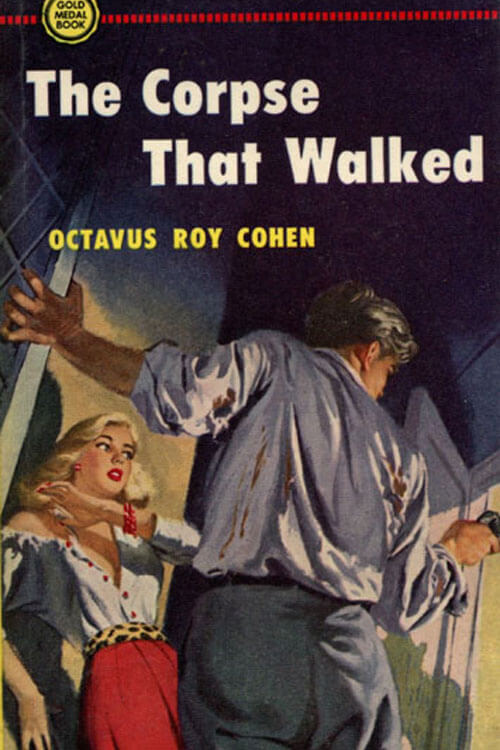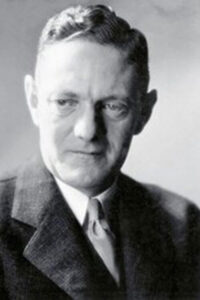
The Corpse That Walked
Gail’s uncertainty returned. This wasn’t Alan. It couldn’t be Alan.
Then, the man raised his eyes as though he had felt hers upon him. Across the heads of restless spectators, Alan Douglas’s eyes looked straight into the eyes of his fiancee. And it was at that instant that Gail Foster reached a definite, irrevocable decision. She turned to her companion and said quietly, “I’m staying in town, Vance, until I find out for sure.”
“I’m not unhappy about that, honey.” She said, “That job you said you could get for me—” “I can get it, all right. It won’t pay much.” “That doesn’t matter. I have some money saved. This job will give me an entree—perhaps even to one of Miss Ralston’s parties at Mr. Hartley’s place.”
“Uh-huh. It’ll do that. But you sure are sticking your neck way out, Gail.” He glanced at his watch. “Tain’t as early as it was. I suppose we start travelin’. Tomorrow morning, we’ll go see Lee and Niki about the job.”
Read or download Book
Octavus Roy Cohen
Octavus Roy Cohen (1891–1959) was an early 20th-century American writer specializing in ethnic comedies. His dialect comedy stories about African Americans gained popularity after being published in the Saturday Evening Post and were adapted into a series of short films by Al Christie featuring actors Charles Olden, Spencer Williams Jr., Evelyn Preer, and Edward Thompson.
Biography
Early life
Cohen was born on June 26, 1891, in Charleston, South Carolina, to Octavus and Rebecca Cohen (née Ottolengui). He pronounced his first name oc-tav’us, a as in have. Through his mother, he was the cousin of Rodrigues Ottolengui, who also wrote crime fiction.
He received his secondary education at the Porter Military Academy, now the Porter-Gaud School, and graduated in 1908. He went on to Clemson College (later renamed Clemson University) and graduated in 1911 with a degree in engineering.
Career
Between 1910 and 1912, he worked in the editorial departments of the Birmingham Ledger, the Charleston News and Courier, the Bayonne Times, and the Newark Morning Star.
He became popular as a result of his stories printed in The Saturday Evening Post which were about African-Americans. In 1913, he was admitted to the South Carolina bar and practiced law in Charleston for two years. Between 1917 and his death, he published 56 books, works that included humorous and detective novels, plays, and collections of short stories. He also composed successful Broadway plays and radio, film, and television scripts.
As a mark of his success, on March 20, 1923, Cohen bought the “Redin-Cohen” house, a Tudor Revival-style home in Birmingham, Alabama. He was known to host local writers and journalists to discuss fiction writing while in Birmingham.
He moved from Birmingham to Harlem, New York, in the late 1930s and then to Los Angeles to pursue a film career.
Personal life and death
He married Inez Lopez in October 1914 in Bessemer, Alabama. They had one son, Octavus Roy Cohen, Jr.
His wife died in 1953. He died of a stroke on January 6, 1959, in Los Angeles and is buried at Forest Lawn Memorial Park in Glendale, California.
Works
His most notable creation was “Florian Slappey”, a fictional black detective who appeared both in print (in the Saturday Evening Post) and in a series of short films in the 1920s, These were “ethnic comedies” following the bumbling investigations of Slappey and his travels from Birmingham, Alabama, to Harlem, New York. They were later assembled into a stage play, “Come Seven”, with Slappey played by Earle Foxe, which ran for 72 performances. A second detective stage play, “The Crimson Alibi” , featured a white detective, David Carroll.






